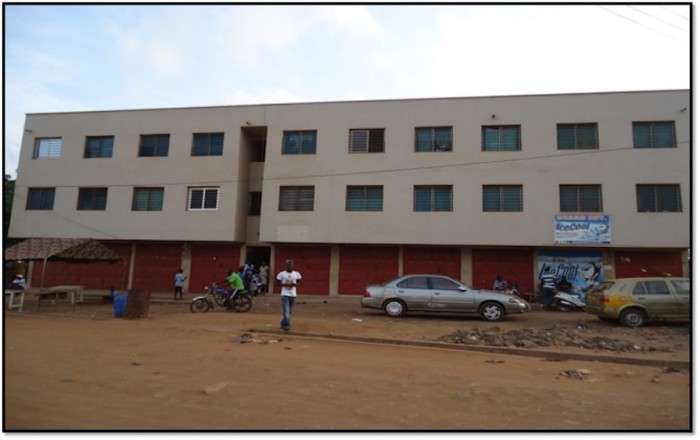According to Farouk Braimah from the Peoples Dialogue on Human Settlements (PD), one in eight of the world's population are living in slums. His assessment comes from a report by the United Nations Habitat in 2017. Braimah, who lives in Accra, wants to address this statistic with the team at PD and its partnering company, the Ghana Federation of the Urban Poor (GHAFUP).
The non-profit organisations, which specialise in building up communities, play the role of middlemen between the residents of Ghana and the government through various projects that dive deep into urban poverty, landlessness, joblessness, and homelessness.
For example, the Amui Dzor Housing project is a demonstration housing initiative that not only affects Ghana but the world.
“The proportion of slum dwellers is most acute in Africa at 55.9 per cent, followed by Asia at 27.9 per cent and one-fifth of slum households are headed by women who are often the poorest and most vulnerable,” said Braimah during an interview with GhanaWeb.
Through the project, they were able to provide housing facilities for 31 slum families so far. The houses which are located in the centre of Ashaiman-Tulku within the Greater Accra Region also doubled as rental stores and toilets, which were created to make the town more commercial.
“One important attribute of this demonstration project was that it has offered lessons on how the urban housing and sanitation could be improved through engagement and involvement of the slum dwellers," he went on to add.
The project was done in association with Amui Dzor Housing Cooperative members in the construction of UN-Habitat’s Slum Upgrading Facility (SUF). The team hopes to expand the project over the next couple of years to create even more housing opportunities.
Clean Cookstove is another of Braimah's projects. Part of a global network, the Clean Cookstove programme hopes to cut down the use of harmful fossil fuels in under-resourced areas.
“Our mothers, daughters in the quest to feed the family go through difficult moments in the kitchen inhale smoke and in some cases very costly to their health,” said Janet Adu, Chairperson of GHAFUP.
According to the Global Alliance for Clean Cookstoves more than 80 per cent of Ghana’s population relies on the use of fossil fuels. In Ghana, exposure to smoke from traditional cookstoves causes nearly 18 thousand deaths every year. If not death, they could cause chronic illnesses or respiratory infections they are caused by the use of different fuels.
This programme intends to reduce indoor air pollution from wood smoke, reduce deforestation and to improve living standards for over 2000 households, especially those mothers and children who spent most of their time in the kitchen.
Adu also revealed that the key driver in the development of this project is to create access to sustainable energy which in the long run will equip the people of Ghana with clean and efficient household cooking solutions while also protecting the environment.
The programme is being funded by Shack/Slum Dwellers' International (SDI) as part of the Energy Justice Programme and is set to roll out in early 2019 in Ghana's inner cities.
Ghana Federation of the Urban Poor and People’s Dialogue on Human Settlements intend to market and supply more than 2000 improved cook stoves to over two thousand 2000 households in urban communities in the Greater Accra Metropolitan Area. The project is also intended to benefit more than one 100 fish smokers with the supply of improved fish smoker ovens.
Read more about the initiative.
More stories on impactful design:
Lucia Bakulumpagi-Wamala on building new ways to tackle electricity shortage in Uganda
3 projects that predict the future of food, travel and architecture
Inclusive AI can be both good and bad, says the Poet of Code








